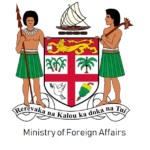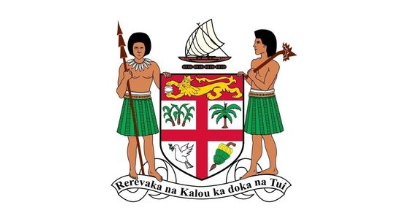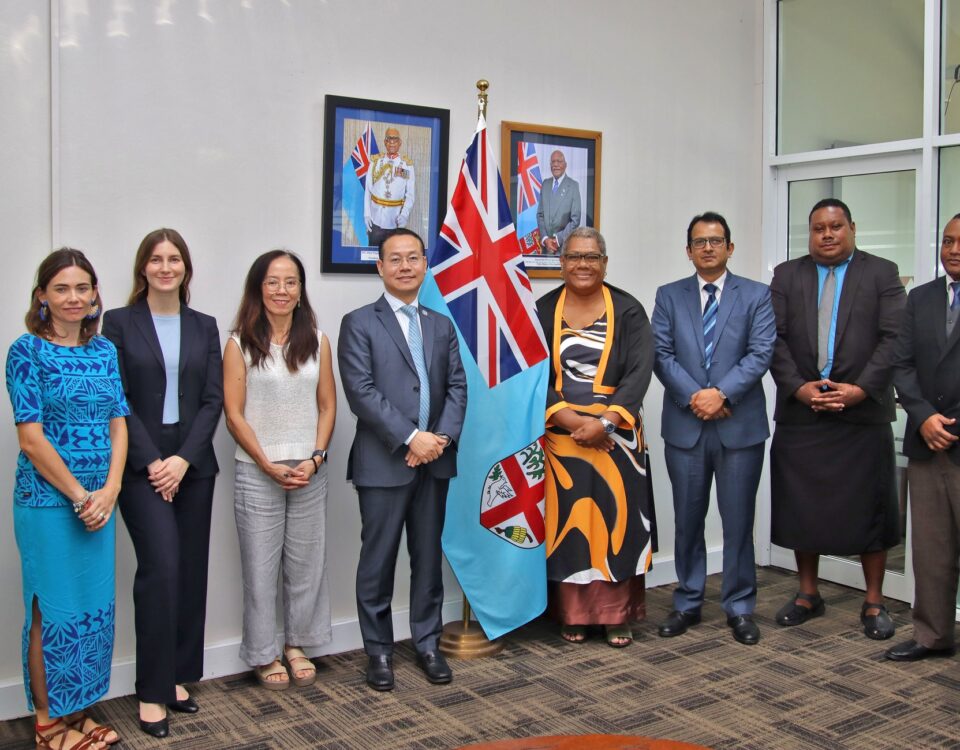
Prime Minister Voreqe Bainimarama’s Video Message at the High-Level Event on Financing for Development in the Era of COVID-19 and Beyond
29/05/2020
Statement by Minister Mereseini Vuniwaqa on the Pacific Women Leader’s Meeting Responding to the Impact of COVID-19 on Women and Girls in our Region
05/06/2020Published On: 03/06/2020
Bula vinaka from Fiji.
I’d like to extend a special “jambo” to my friend, His Excellency President Kenyatta. During my time in Kenya you were an excellent host and an invaluable ally to Fiji’s climate action advocacy. I’m proud to stand with you in common cause yet again as we look to transcend the challenge of COVID-19.
Yesterday marked the start of hurricane season in the Atlantic Basin. I pray our sisters and brothers across Africa and in the Caribbean are spared from severe weather as they reckon with the coronavirus.
This pandemic –– like climate change –– affects all of us. Like the rising seas, stronger storms and changing weather patterns, this new crisis, and the looming financial burden of over-coming it, makes the division between the developed and developing worlds feel starker than ever. And even with much of the world at a standstill, our changing climate doesn’t rest for any disease, meaning that already-vulnerable communities across the Pacific, Africa, and the Caribbean are left contending with some of the most devastating consequences of both crises at once.
In Fiji, Tropical Cyclone Harold arrived on the heels of our first COVID-19 case. We climate-proofed our public health response to prevent the storm’s chaos from worsening the spread of the virus –– and our containment strategy has since proved decisive.
But 43 days removed from our last confirmed case, it’s clear the pandemic’s economic fallout is far more destructive than any storm, and far beyond our own capabilities to constrain. With up to 40 per cent of our GDP dependent on Tourism, our full recovery will be measured, not in months, but in years.
Global financing frameworks were already ill-suited to confront the climate emergency, and COVID-19 has further exposed their inability to rapidly and sustainably respond to the complex realities across our regions. Last week, at a special summit convened by the Prime Ministers of Canada and Jamaica, I called for radical financing solutions to respond to the radical economic crisis at our doorsteps. Specifically, to ensure the full implementation of the Sustainable Development Goals.
Just one third of the way in our journey towards the 2030 Agenda, we’ve arrived at a defining crossroads. If the world stands by and watches this crisis drive vulnerable economies into the ground, the SDGs will be all but impossible to achieve. Socio-economic support systems will be crippled, and existing inequalities will deepen.
The ten (10) years separating us from 2030 was meant to be a period of great unification, uplifting the lives of billions. But if the international community mishandles its response to COVID-19, we risk this being a lost decade –– one of irreparable consequence for our planet and human-kind. Without urgent intervention to keep the developing world on course towards the SDGs through this crisis, human progress will wear the scars of this pandemic for generations.
It is estimated that Pacific Small Island Developing States require additional economic stimulus packages of at least 15 percent of the value of our GDPs to maintain our social and economic orders. With our traditional revenue sources gutted, the support of our development partners, including within the European Union, and multilateral development banks is critical.
Amidst this pandemic, African, Caribbean, and Pacific Island States must be empowered to continue investing in all of our SDGs –– and the highly-developed nations of the world must not lose sight of the vision that first inspired the 2030 Agenda.
In the coming months, COVID-19 will trigger financial decisions that have the potential to reshape the world as we know it. The developing world deserves a seat at that table –– and we demand to be consulted about considerations that will determine our fate.
We must stand in solidarity with one another, and the EU must not settle for unilateral outcomes that more closely resemble a return to colonial inequities than the inclusive future we sought to achieve. Consult, don’t prescribe.
This will be a story of two recoveries –– one economic and one health. Each fundamentally depends on the other. And neither can be achieved without co-ordinated global action. We vulnerable nations must speak loudly, with one voice, to ensure that sustainable progress isn’t the ultimate casualty to COVID-19.





